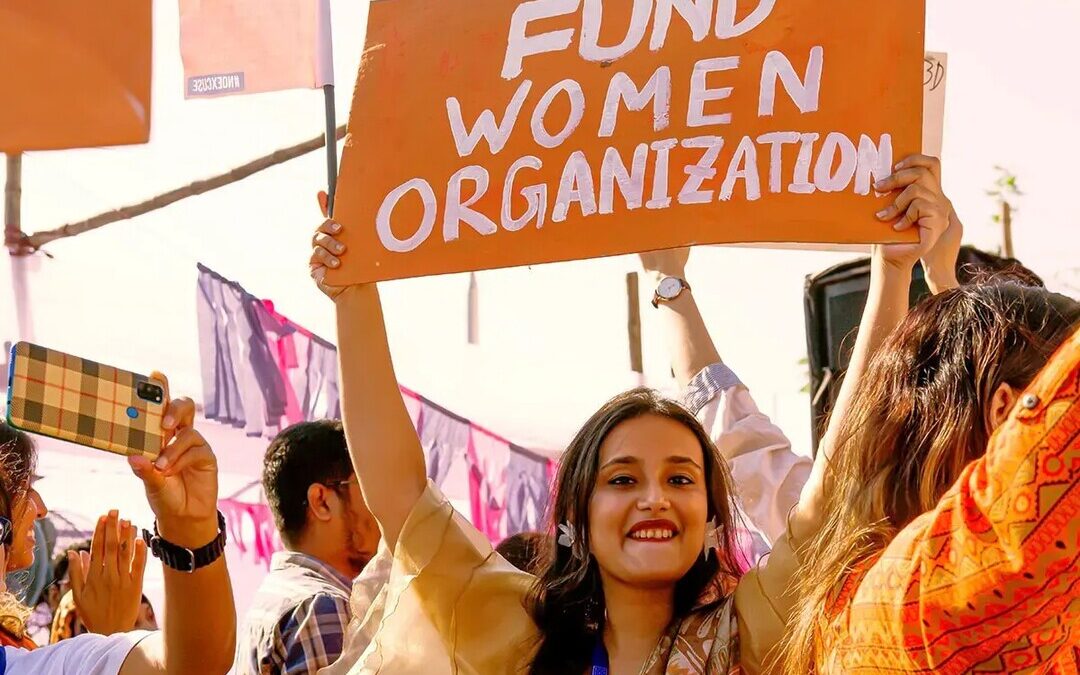Funding Cuts Imperil Global Efforts to End Violence Against Women, UN Warns
Global aid cuts are crippling women’s rights groups, threatening decades of progress toward gender equality and violence prevention.
A record $78 billion in aid cuts has left frontline women’s rights organizations at risk of collapse, threatening decades of progress toward gender equality and safety for women and girls worldwide, according to a new UN Women report released Tuesday.
The study, “At Risk and Underfunded: How Funding Cuts Are Threatening Efforts to End Violence Against Women and Girls,” found that six in 10 women’s organizations supported by the UN Trust Fund have already been forced to scale back or suspend services.
Nearly half of all women’s rights groups working in humanitarian settings warned they could shut down within six months.
“These cuts are not only about lost resources; they represent a political decision to roll back women’s rights,” said Dr. Julia Zulver, senior researcher at the Ladysmith Collective and lead author of the report. “Without funding, movements fade into silence.”
Crisis of Political Will and Prioritization
The report, based on a global survey of 428 civil society and women’s rights organizations across 90 countries, found that 34.5 percent of groups have had to terminate or suspend programs entirely. The most affected areas include empowerment initiatives, advocacy campaigns and psychosocial support services for survivors.
Funding for programs aimed at ending violence against women and girls, or EVAWG, has historically been small, accounting for less than one percent of total official development assistance.
Between 2021 and 2022, just $563 million, out of the hundreds of billions in total ODA, was directed toward EVAWG programs, with only $410 million allocated to prevention work specifically.
As global crises multiply, donor priorities have shifted toward defense, national security, and short-term humanitarian relief. UN Women warns that this reprioritization is starving women’s rights organizations of the steady, flexible financing needed to sustain long-term impact.
The report calls the trend a “dangerous paradox,” where instability increases women’s vulnerability while funding for their protection disappears.
Essential Services in Retreat
Across multiple regions, the effects are already visible. In Ukraine, over 60 percent of women’s organizations addressing gender-based violence have reduced or suspended operations due to funding shortfalls.
Similar closures have been reported in Cameroon, Egypt and Bangladesh, where shelters, hotlines and legal services have been scaled back or shut down.
Globally, 89 percent of survey respondents reported that funding cuts have severely reduced women’s access to support services.
More than 80 percent said safe shelter availability had dropped sharply, and 79 percent cited the decline of specialist services, including legal and psychological care.
“When survivors cannot reach shelters or legal help, their risks multiply,” said Zulver. “We are seeing an erosion of protection systems that took decades to build.”
The report adds that service cutbacks are also increasing impunity for perpetrators. Nearly 60 percent of organizations observed growing normalization of violence and declining accountability within justice systems.
Impact on Prevention and Feminist Leadership
Prevention programs, which are already underfunded, are being deprioritized. About 23 percent of groups surveyed said they have been forced to interrupt or cancel prevention activities, such as girls’ leadership clubs, awareness campaigns and community education.
Meanwhile, 35 percent of respondents said they could no longer sustain economic empowerment programs that help women escape cycles of abuse.
“Cutting prevention is a false economy,” said Zulver. “It ensures that the costs—human, social, and economic—will be much higher in the long run.”
The survey also revealed that 73 percent of organizations reported significant operational strain. Staff burnout, unpaid salaries, and mass layoffs have become common. Some groups are surviving on volunteers’ personal funds.
Smaller, grassroots women’s rights organizations, particularly those led by women from marginalized communities, are being hit the hardest, with 65 percent reporting severe impacts.
Global Goals at Risk
UN Women warns that the defunding of EVAWG efforts dampens progress toward Sustainable Development Goal 5 of gender equality and jeopardizes at least 14 of the 17 SDGs, including poverty reduction, education and peacebuilding.
The report argues that stable funding for women’s rights is not only a moral imperative but also a strategic investment in security and development.
Research shows that countries with strong feminist movements are more likely to adopt progressive, inclusive policies, while those with weakened civic spaces face higher rates of instability.
“Now is not the time to reduce funding for women and girls,” Zulver said. “Women are on the frontlines of peacebuilding, recovery, and resilience. Cutting support now would reverse decades of progress.”
Call for Immediate Action
UN Women’s recommendations urge governments and donors to restore and safeguard EVAWG funding, adopt fully budgeted national action plans and ensure multi-year, flexible grants for women’s rights organizations.
It also calls for reforming restrictive funding mechanisms and removing legislative barriers that prevent civil society groups from receiving international aid.
“Securing feminist financing is essential for the stability of communities and nations,” Zulver said. “If we fail to act, the rollback on women’s rights will deepen and endure for generations.”
Also Read:
Closing Gender Digital Divide Could Add $1.5 Trillion to Global Economy: UN
Nirmal Menon
Related posts
Subscribe
Error: Contact form not found.


